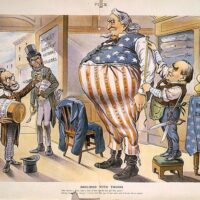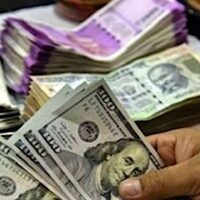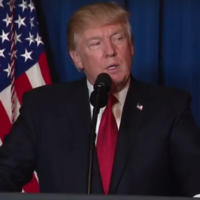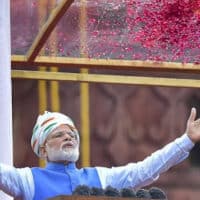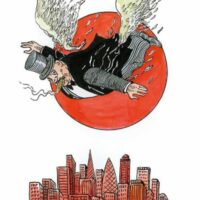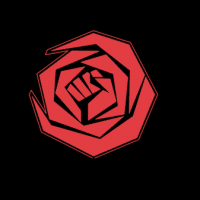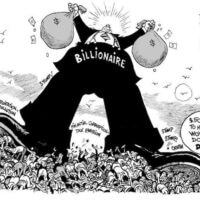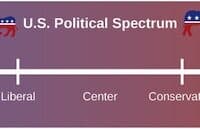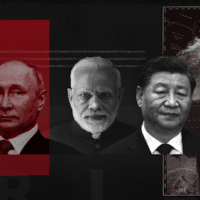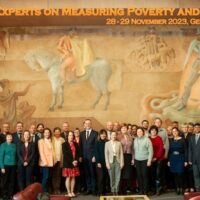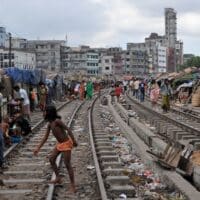-
Economic response to U.S. imperialism
U.S. imperialism in short believes that it can do whatever it likes, that it is a law unto itself.
-
“GDP-NATIONALISM”
There are at least three basic differences between European nationalism as it developed in the seventeenth century and the anti-colonial third world nationalism of the twentieth century.
-
The curious case of strengthening dollar, falling rupee
The primary cause of the rupee’s depreciation is the preference of the Indian rich to hold their wealth in the form of U.S. dollars rather than in Indian rupees.
-
Trump’s threat of a tariff wall
All this however is still in the realm of mere possibilities; what is more certain is the 10 per cent tax on global imports and the 60 per cent tax on imports from China.
-
Disempowering the people
The aim of all fascistic governments is to disempower the people; and the Modi government is no exception.
-
The Hegemony of the Dollar
Liberal opinion holds that the international monetary and financial system is a device for promoting the interests of all participating countries by providing a convenient payments arrangement within which trade can be carried on. The reality however is altogether different: the international system is founded upon the hegemony of western imperialism, and in turn sustains this hegemony.
-
Neoliberalism and before
KARL Marx had once said that all criticism must begin with the criticism of religion.
-
Defining socialism
The CJI refrained from giving “socialism” an institutional character. All over the world the term “socialism” has been taken to mean social ownership of the means of production, at least of the key means of production; but the CJI, defining “socialism” in terms of outcome rather than the institution of ownership suggested that private enterprise was not incompatible with “socialism”; what really mattered was the creation of a welfare state ensuring equality of opportunity for all citizens.
-
Fiscal transfers to capitalists
It is common for governments these days to provide fiscal transfers to capitalists, whether through reduced corporate tax rates, or by providing direct cash subsidies, to encourage greater investment by them and thereby stimulate the economy. During Donald Trump’s first presidency there had been a cut in corporate tax rate with this objective in mind. In India the Modi government, as is well-known, has given massive tax concessions with the same objective.
-
The crisis of Liberalism
The political philosophy of classical liberalism, which provided the basis for liberal political praxis, was sustained by a long tradition of bourgeois economic thought, straddling both classical political economy and neo-classical economics.
-
The Kazan summit of BRICS
The BRICS declaration presumes that the international institutions in their current state are flawed because they are dominated by imperialist countries and are not representative enough; but they are flawed because their very essence is flawed, no matter how they are governed.
-
The dialectics of wealth and poverty
THIS year’s Nobel Prize in economics (the Riksbank Prize to be more precise) has been awarded to three U.S.-based economists for their research into what promotes or hinders the growth of wealth among nations; and they assign a crucial role to institutions, arguing that western institutions like electoral democracy are conducive to growth.
-
How not to measure poverty
Several international organisations are now engaged in the business of measuring what they call “poverty”.
-
Imperialism’s striving for expansion
The further development of the centralisation of capital, leading to its consolidation, has on the one hand muted inter-imperialist rivalry, since capital now wants the entire world, not broken up into spheres of influence of rival powers, as the domain for its unrestricted movement; on the other hand it has also led to an attempt on the part of now-united imperialism to reassert its hegemony over the territories that had broken off from it earlier.
-
The stagnation of the world economy
The fact that the world economy has slowed down since the financial crisis of 2008 is beyond dispute.
-
West Africa’s resistance against imperialism
WEST Africa, which had been largely under French colonial rule, never saw decolonization of the sort that India did.
-
The bizarre state of Western democracy
The policies favoured by the ruling class in other words are being pursued despite public opinion being palpably and systematically opposed to them.
-
The criminality of unilateral sanctions
DURING Modi’s visit to Ukraine (why he visited Ukraine at all at the present time remains a mystery), Zelensky asked India not to purchase fuel from Russia in violation of western sanctions, that is, to fall in line with the “unilateral” western sanctions.
-
The transient “miracles”
Right until 2021 Bangladesh was considered a success story of export-led growth within a neoliberal setting.
-
The pitfalls of growth under unrestricted trade
The French economist J B Say had believed that there could never be a problem of aggregate demand in any economy, that whatever was produced was ipso facto demanded.

